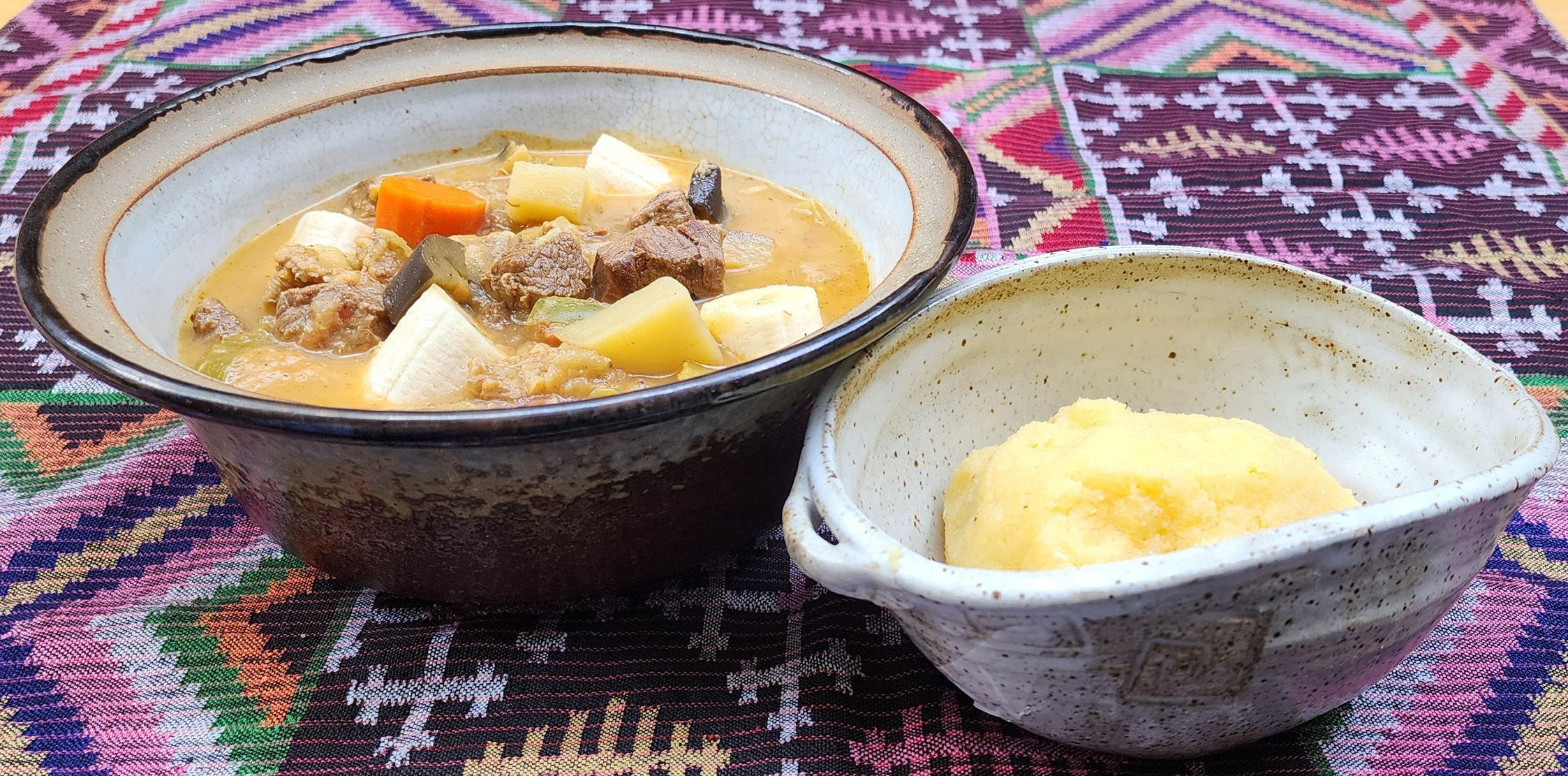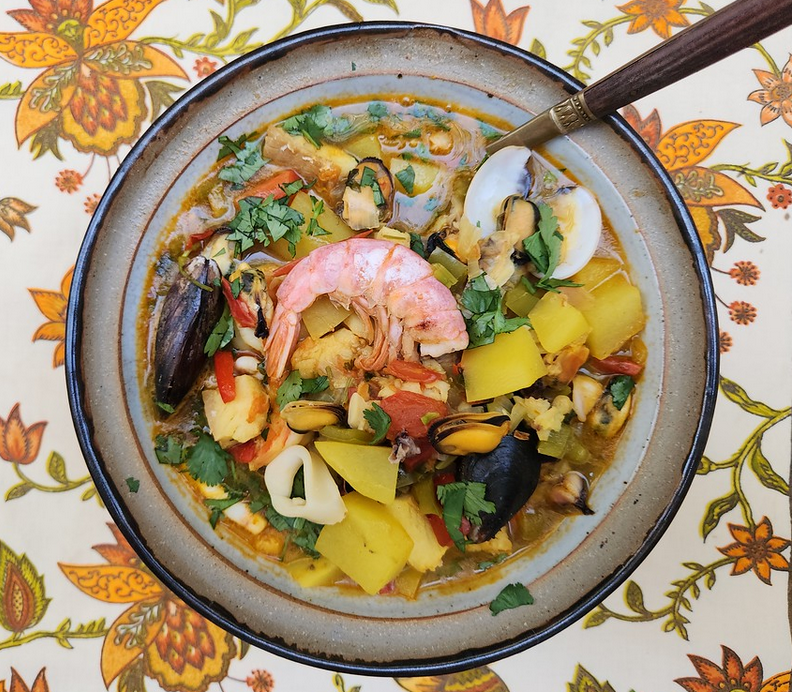Our recipe for this month is Mchemsho, a hearty stew that originated in northern Tanzania but is enjoyed throughout the country. Because of the cost and availability of its ingredients in East Africa, it's often enjoyed only on special occasions. However, most of the ingredients can be found in supermarkets here. Mchemsho can be enjoyed at any time of day, even for breakfast!

The name "mchemsho" comes from the Swahili word "chemsha," meaning "to boil," which accurately describes the dish. Like many traditional cuisines, mchemsho incorporates ingredients from around the world. Bananas and ginger hail from Southeast Asia, potatoes, tomatoes, and green peppers from South America, and other components from various regions of Asia and the Mediterranean. Yet, the unique combination of these ingredients is distinctly East African. Green bananas are a key component, setting mchemsho apart from similar stews in South America that typically use plantains. Green bananas tend to be milder in flavor and are commonly used in savory dishes.
One ingredient that might pose a challenge is the East African eggplant, scientifically known as "solanum aethiopicum". Also called "bitter tomato" or "mock tomato". It loses its bitterness when cooked. Unlike the common eggplant, the East African variety grows on a tall bushy plant, and the eggplants themselves come in various shapes and colors. It's highly valued in East Africa, often given as a wedding or naming ceremony gift. While it might be difficult to find an exact match, small Indian or Asian eggplants can be used as substitutes. The remainder of the ingredients are readily available at any grocery store.
Ugali, a staple East African starch, is often served alongside stews. It's a simple dish made from cornmeal, water, and a pinch of salt, cooked into a thick porridge.
Cook's notes: This recipe calls for beef, but it can also be made with chicken. To make a fish-based coastal version, substitute seafood (fish or shrimp) and add some coconut milk!
Mchemsho is traditionally served with ugali, but it can also be enjoyed with rice, chapati, or bread.
I couldn't obtain white cornmeal, so I used yellow cornmeal instead, with limited success because even after considerable cooking, it didn't become doughy.
To speed things up, I cooked the beef in an Instant Pot for 30 minutes and then transferred the beef and liquid to a stovetop pot to finish the stew.
Ingredients:
- 2 pounds of stew beef (chuck, short rib, or rump)
- 2 potatoes, cubed (Russet or Yukon Gold)
- 2 carrots, sliced
- 4 green bananas, peeled and sliced thickly
- 1 cup of sliced green cabbage
- 1 eggplant, cubed
- 1 onion, chopped
- 2 medium tomatoes, chopped (can substitute canned diced)
- 1 green bell pepper, sliced
- 2 cloves garlic, minced
- 1 inch ginger, grated
- 1 teaspoon cumin
- 1 teaspoon coriander
- 1 teaspoon turmeric
- Juice of 1 lime
- Salt and pepper to taste
- Vegetable oil
Preparation:
- In a large pot (Dutch oven works best), brown the beef in a little vegetable oil.
- Add the chopped onion, garlic, and ginger to the pot and sauté until fragrant.
- Add sufficient water to cover the meat and bring the water to a boil.
- Reduce heat to a simmer, cover, and cook for an hour or until the beef is tender.
- Remove the lid and stir in the cumin, coriander, and turmeric.
- Add the potatoes, carrots, green bananas, eggplant, cabbage, tomatoes, and bell peppers to the pot.
- Pour enough water to cover all the ingredients, season with salt and pepper, and bring to a boil.
- Reduce heat and simmer for about 1/2 hour, or until the meat is tender and the vegetables are cooked through.
- Stir in lime juice, taste, and adjust seasoning as needed. Mchemsho is traditionally served with ugali, but it can also be enjoyed with rice, chapati or bread.
East African Ugali
Ingredients:
- 2 cups water
- 1 cup white cornmeal
- 1/2 teaspoon salt
Preparation:
- In a large saucepan, bring the water to a rolling boil.
- Gradually add the cornmeal to the boiling water, stirring constantly with a wooden spoon to prevent lumps.
- Reduce the heat to medium-low and continue to cook, stirring frequently. The mixture will thicken as it cooks.
- The ugali should be thick and firm but still pliable. If it's too thick, add a small amount of water; if it's too thin, cook for a few more minutes.
Tamanisha!
Recipe by T. Johnston-O'Neill
Photos by Shari K. Johnston-O'Neill









